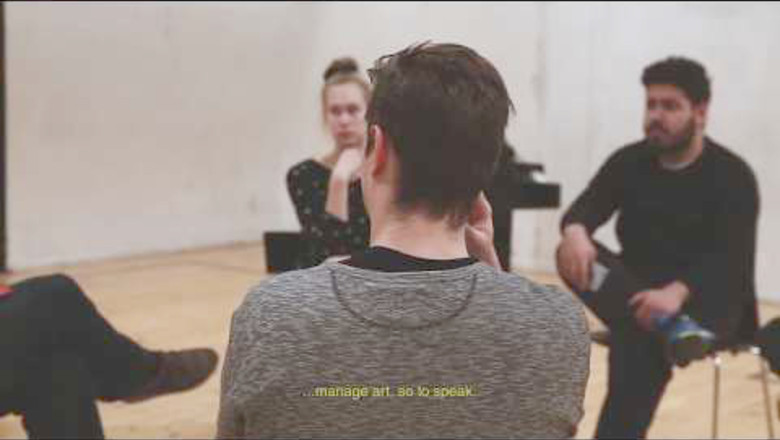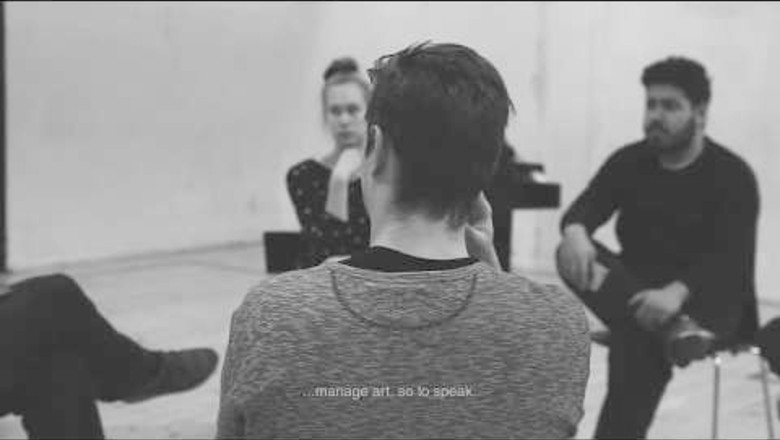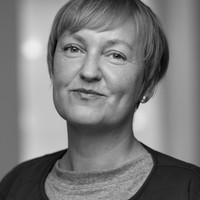Management (production and stage management)
management (production and stage management)
The specialisation in management will prepare you to carry out production manager and stage manager functions for various performing arts projects and formats.
The role of the stage manager varies depending on the project’s scope and which phase of the production process you are in. During the performance period, you are responsible for performative execution. It is your job to ensure that the audience has the best possible experience, that the performance maintains its artistic standards, and that safety and working environments are controlled for participants on and off stage. This role requires that you have a broad knowledge of theatre, processes, stage technique, equipment and safety procedures and that you are extraordinarily good at sustaining relationships and working collaboratively. You must thrive on responsibility and be able to make quick decisions.
During the rehearsal phase, a stage manager’s role is to coordinate and facilitate. You will collaborate closely with other production professionals, and your responsibilities will include developing rehearsal plans as well as creating a process design capable of keeping the project running well and supporting the performance’s artistic vision.
As a production manager, you are primarily responsible for a production’s administrative dimension. You prepare a budget, manage the production's finances and other resources, and serve as the staff manager for various employees. Therefore, you must be able to sustain an overview, assess production needs based on a range of parameters, and be ready to act based on your assessments. In order to be a good sparring partner for your colleagues, you must know a lot about set constructions as well as building requirements and options. Hence, in theory and practice, you will have to engage with technical drawing, stage technique, materials, and 1:1 practical solutions. You must also be very interested in the work processes carried out by your collaborators, and you must be able to thrive amid the alternating demands of desk work and practical work on the floor with your colleagues.
The management specialisation (production and stage management) requires that you have a diverse range of interests and a broad skill set. You have a central role to play and will be a point of interface for many people. You must be energized by a dynamic in which everyone works toward shared artistic goals. Equally, you must have a feel for collective, artistic work processes and be very good at getting many different people to collaborate.
The programme is comprehensive and varied, which means that teaching extends to areas such as: budget and finance, process planning, personnel management, conflict management, meeting facilitation, dissemination, technical execution, safety, stage technology, working environment, knowledge of materials and construction design calculations. The teaching rooms are also very different: some are theoretical, others are practice-based. Some days you must focus on refining practical construction skills in the workshop, and other days you must analyse and reflect on your personal leadership. As often as possible, you will need to combine these elements in collective production and creative processes. Here, you will work closely with students from the other specialisation paths at the school and with a professional production team (builders, tailors etc.).



